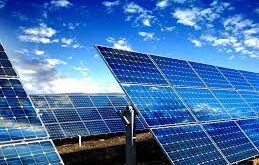Nord Stream 2, the underwater gas pipeline meant to connect Germany and Russia via the Baltic Sea, has received another blow as the German Federal Network Agency has rejected Nord Stream’s request for the project to be exempted from the EU’s Gas Directive, according to media reports.
Nord Stream 2 was nearing completion in late December last year when the threat of US sanctions made Allseas, a Swiss company specialising in pipelay and subsea construction, freeze its pipe-laying operation near the German coast.
As Russia lacks the technological capability to finish construction on its own, and is unable to find a company with those skills and willing to risk US sanctions, work on Nord Stream 2 has not been restarted in 2020.
The Polish energy expert Jakub Wiech wrote in an article for Energetyka24.com that Nord Stream 2 will face additional hurdles as it will not be exempt from the EU’s Gas Directive.
Mr Wiech is pointing to new, unofficial reports, released by the leading German business newspaper Handelsblatt, stating that German Federal Network Agency has discarded Nord Stream’s request to have the pipeline exempt from the EU directive.
An amendment to the European Commission’s Gas Directive, signed off in February last year, stipulates that import pipelines may not be owned by suppliers and that third parties must be allowed to use the infrastructure. Pipelines built before May 23 2019 are exempt from the regulation. The German parliament tried to add an amendment to a piece of legislation, making it possible for pipelines still under construction to also be exempt from the EU regulation. The amendment was ultimately rejected but Nord Stream 2 decided to appeal for an exemption.
According to Handelsblatt, that request has now been turned down by the Federal Network Agency (Bundesnetzagentur, BNetzA), the German regulatory office for electricity, telecommunication, post and railway markets.
Such a decision, coming on top of the US threat of sanctions on companies involved in the project, would make the situation for those involved in the Nord Stream 2 project even more complicated.
The decision would be well received in Poland, Ukraine and the Baltic States, countries which have all objected to Nord Stream 2. The Central Eastern Europe transit states for Russian gas argue that the pipeline would make it possible for Russia to single out and threaten those countries with turning off the tap while gas exports to Germany and other states in Western Europe could continue uninterrupted.
Russia has used its gas resources as a tool for political extortion against Ukraine on several occasions, most notably between 2005 and 2009. The Central European states have argued that Nord Stream 2 threatens their energy security and have asked the European Commission for an intervention.
The pressure, which in 2019 resulted in the amendment to the EU Gas Directive, seems to have paid off, as Gazprom and its partner will be stopped from a monopolistic use of Nord Stream 2, if the project is ever finished.
The Russian state-controlled gas giant Gazprom controls 51 percent of the shares in the special purpose company Nord Stream AG. The German companies Wintershall and PEG Infrastruktur AG each own 15 percent of the shares, while the Dutch company Gasunie and the French gas company Engie control 9 percent each.
 Iran Energy News Oil, Gas, Petrochemical and Energy Field Specialized Channel
Iran Energy News Oil, Gas, Petrochemical and Energy Field Specialized Channel




